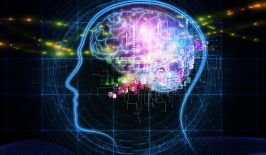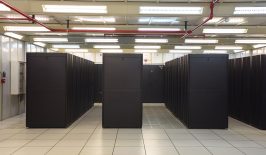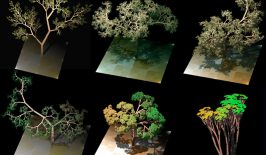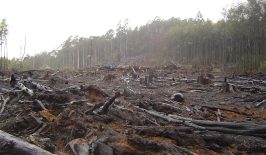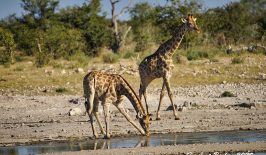What does Climate Change AI do? How can AI be used to tackle climate change and to help us adapt to its effects? We talked about this with Lynn Kaack, chair of the group Climate Change AI and postdoctoral fellow in the Energy Politics Group at ETH Zurich. She does research into energy systems and climate policy using methods of policy analysis, statistics and machine learning.
Lynn, what exactly is Climate Change AI?
 © Lynn Kaack ist Vorsitzende der Gruppe Climate Change AI. Sie forscht zu Energiesystemen und Klimapolitik.
© Lynn Kaack ist Vorsitzende der Gruppe Climate Change AI. Sie forscht zu Energiesystemen und Klimapolitik.Climate change mitigation and adaptation are complex challenges that are being addressed in a variety of different ways. If we want to apply artificial intelligence to the challenge of climate change, we need an understanding not only of AI but also of course of the consequences of climate change and how to mitigate them. In practice, however, that means bringing together experts from different fields who don’t usually work together or interact. We are a group of scientists who have taken on the task of bringing those two groups of experts together. Under the name Climate Change AI we offer a platform for everyone who wants to work on tackling climate change using AI. We also aim to contribute to a nuanced and critical debate about the use of AI in the field of climate change.
How did Climate Change AI come about?
I did my doctorate on the topic of climate change at Carnegie Mellon University. That American university is a main centre of AI research and they place a lot of importance on interdisciplinary collaborations. During my PhD I studied machine learning and wrote the last two chapters of my thesis on AI and climate change. My research showed me that more needs to be done to encourage interdisciplinary exchange between these two areas. At about the same time, a group of AI researchers who were also interested in climate change came together at one of the largest international AI conferences (NeurIPS 2018). I was introduced to them through a colleague and together we wrote a comprehensive scientific paper on the topic. That laid the foundation for Climate Change AI.
What does your collaboration look like?
Although the members of Climate Change AI are spread throughout North America and Europe, we work very closely together. We organise regular lecture series at AI conferences, have a newsletter and an online forum – all about AI and climate change. And we have further plans for the future: As an organisation we would like to offer financial support to research projects in order to further knowledge and set new standards within the field.
And what are the biggest hurdles for AI applications that help to tackle climate change or adapt to its effects?
It’s of fundamental importance that we get financial and regulatory incentives from policy-makers to support the fight against climate change. Without those incentives, many climate protection strategies and, of course, AI applications are more difficult to implement.
Another challenge comes from the fact that AI applications are data-based and are not always easily accessible for research. For example, companies are reluctant to release data sets for competitive reasons. In practice, too, there’s a lot that still needs to be done. AI methods often have to be embedded in existing systems and processes. If we want to encourage developments in industry and the public sector, we will have to come up with new approaches.
It’s really important that there is collaboration between AI experts, people working in climate change and people who work in industry and the public sector – as that helps us to tackle a problem in the right way. And that’s exactly the kind of collaboration that we want to support and encourage with Climate Change AI.
This is a translation of an original article that first appeared on RESET’s German-language site.
This article is part of the RESET Special Feature “Artificial Intelligence – Can Computing Power Save Our Planet?” Explore the rest of our articles in the series right here.

